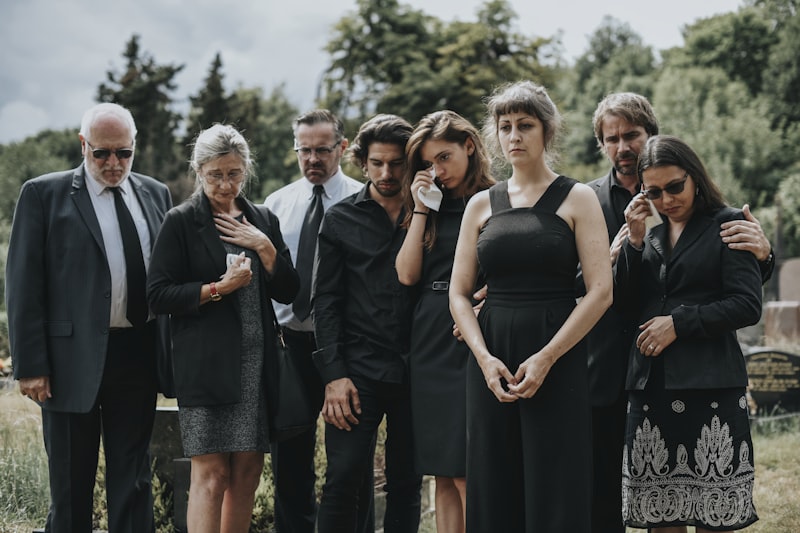Unlocking the Significance of Communication in Wedding Planning
Unlocking the Significance of Communication in Wedding Planning
In the realm of wedding planning, effective communication is not just a useful tool; it is the glue that holds everything together. As couples embark on the journey to one of the most important days of their lives, the manner in which they convey their ideas, feelings, and expectations can significantly influence the outcome of their special day. In this article, we will delve into the importance of communication in wedding planning, explore various aspects that require seamless collaboration, and provide valuable tips for ensuring that everyone is on the same page. Let’s explore the multifaceted significance of communication in wedding planning!
The Foundation of Successful Wedding Planning
Communication serves as the foundation upon which successful wedding planning is built. Whether it’s discussing budgets, themes, or timelines, clear dialogue between all parties involved is essential. A well-co-ordinated wedding can alleviate stress and misunderstandings, leading to a more enjoyable planning experience. Below are some key components that highlight the importance of communication in wedding planning:
| Component | Significance |
| Budget Discussions | Ensure that financial expectations are aligned among couples, families, and vendors. |
| Theme and Style | Allows couples to express their vision clearly, ensuring that their day reflects their personality. |
| Vendor Coordination | Critical for smooth operations; open lines of communication help avoid mistakes and misunderstandings. |
| Timeline Management | A well-communicated timeline helps keep everyone on track and reduces the likelihood of last-minute chaos. |
Enhancing Collaboration Among Stakeholders
Weddings often involve numerous stakeholders, including parents, friends, bridesmaids, groomsmen, and wedding professionals. To ensure everyone's input is valued, effective communication is vital. Here are a few ways to foster collaboration:

1. Schedule Regular Meetings
Regularly scheduled meetings with all involved parties encourage open dialogue and ensure that everyone stays informed about the latest developments and decisions. This allows for the brainstorming of ideas and going over any concerns or adjustments needed.
2. Utilize Modern Technology
In today’s digital age, there are numerous tools available that enhance communication. Platforms like Slack, Trello, or Google Workspace can streamline wedding planning tasks, making it easy for everyone to see updates and contribute ideas in real time.
3. Create a Shared Vision Board
A visual representation of ideas, such as a mood board, fosters clearer discussions about themes and styles. Utilizing tools like Pinterest can help couples and their teams create a shared vision, which can facilitate smoother decision-making.
Understanding Each Stakeholder’s Perspective
Different stakeholders often have varying interests and priorities. Couples must understand that effective communication means not only conveying their ideas but also actively listening to others. Here’s how to facilitate this:
1. Encourage Feedback
Top-down communication can stifle creativity and lead to dissatisfaction among involved parties. Ensure that everyone feels comfortable sharing their thoughts and opinions. This can lead to innovative ideas that might not have surfaced otherwise.
2. Be Open to Compromise
Weddings are a collaborative effort. Couples may have to compromise on certain aspects to ensure that their families or friends feel included in the process. Communication becomes essential in discussing and navigating these compromises.
The Importance of Communicating with Vendors
Vendors play a significant role in the wedding experience; thus, effective communication with them is paramount. Here’s why and how to effectively communicate with vendors:
1. Setting Clear Expectations
When hiring vendors, be clear about what you expect. Whether it’s the floral arrangements, catering, or photography, this clarity will reduce the chances of discrepancies later on. Vendor contracts should detail all aspects agreed upon to prevent miscommunication.
2. Maintain Open Lines of Communication
After hiring vendors, keeping a continuous communication line open is crucial. Regular check-ins before the wedding can help address any last-minute concerns or requests. This ensures that everyone is aligned as the big day approaches.
Managing Stress Through Communication
Wedding planning can create immense stress and anxiety. Open communication can serve as a coping mechanism, allowing couples to express their concerns and frustrations. Here’s how effective communication can mitigate stress:
1. Share Responsibilities
Couples and their support systems should discuss who will handle which tasks. Clear delineation of responsibilities can help avoid confusion and ensure that no one feels overburdened.
2. Lean on Each Other
Discussing worries with your partner or family can lighten the emotional load. Sharing concerns and celebrating small victories can transform stress into a more manageable experience.
Conclusion: The Vital Role of Communication in Wedding Planning
In conclusion, the significance of communication in wedding planning cannot be overstated. It facilitates collaboration, builds solid relationships with vendors, and ultimately contributes to a successful and enjoyable wedding experience. Couples are encouraged to foster a culture of open dialogue, prioritize feedback, and maintain active participation from all involved parties. Remember, a well-communicated plan not only makes for a beautiful wedding but also a cherished journey leading up to it. So, as you embark on your wedding planning adventure, keep these communication tips in mind!
Finally, planning a wedding is a profound and joyous endeavor, but it can also be filled with challenges. Navigating through a myriad of emotions, expectations, and logistics can feel overwhelming without effective communication. Take the time to prioritize discussions with your partner, family, and vendors, and you’ll pave the way for a memorable wedding day.
